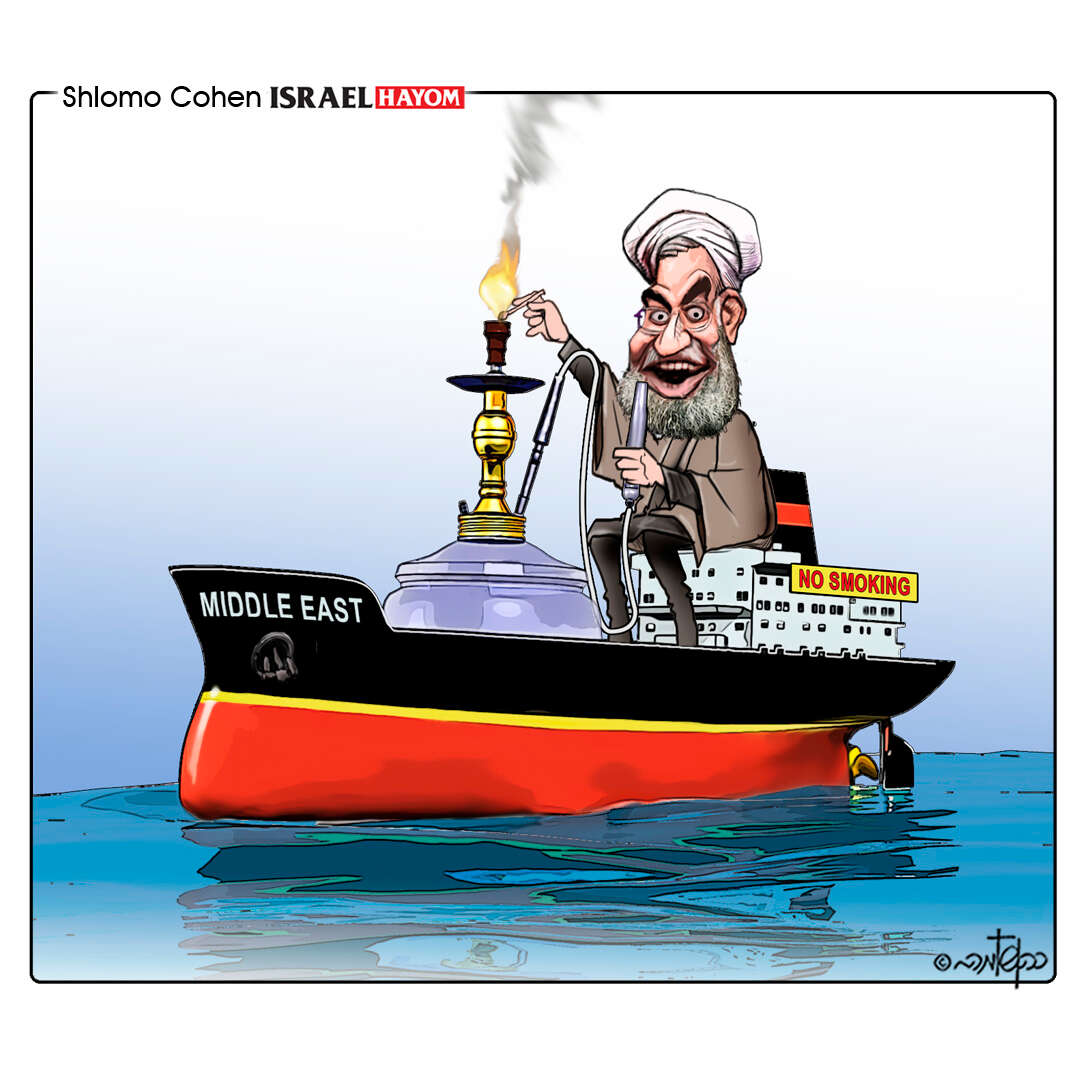Israel Is the One Stabilizing Element in the Middle East
Prime Minister Benjamin Netanyahu interviewed by Boaz Bismuth and Amnon LordKushner says opposition to Iran brings Israel and Arab nations closer together
Asked about how he views the period since he first became prime minister in 1996, Benjamin Netanyahu said, "We discovered that we can leverage the basic characteristics of this people into exceptional strength in economics, defense and security, and diplomacy. We've proved that it is possible to turn Israel from a small country in a corner of the Middle East into a central world power."
"It's obvious that the lack of stability here [in the Middle East] is the result of the struggle between the Dark Ages and modernism - between the tyranny of radical Islam and the forces of freedom. That's the most important battle. That is what is destabilizing everything."
"Standing up to the fundamentalist Islam that wants to take over first the Middle East and then the entire world [is important]. If there's one element that is stabilizing the Middle East and fighting radical Islam here, it's Israel."
"[I told Russian President Vladimir Putin] that I would have to take action in Syria, that I wasn't willing to allow Iran to bring its army to our borders. They [Iran] announce their intention of annihilating us. 'What would you do?' I asked him. I told him that I was sure he would do the same as me."
"The [2015] nuclear deal...wasn't conditional on any change in [Iran's] behavior. The argument was that if Iran received millions as a result of the sanctions being lifted, it would become a moderate state. Today, we can judge....Right now, their policy is to quietly pursue nuclear weapons while also conquering the Middle East with the money that the eased sanctions sent flooding into Iran's coffers."
"You need to increase power, not maintain it. My outlook is built on bolstering our strengths. Without strength, we won't survive. The weak don't survive. A strong people forges alliances. So from the first moment, the main question about Israel's existence was whether we would be able to develop the strengths to not only confront our enemies but also be accepted by the rest of the world. The simple fact is that what makes the world accept you is, first and foremost, your strength."
In recent years, the White House has not concerned itself with the Arab world’s relationship with Israel or with curbing the actions of specific Arab nations regarding topics such as human rights or the funding of terror. But Washington has certainly factored in the collective contempt and desire among Sunni nations to reign in Iran’s mullahs and has used this to its advantage.Khamenei: Palestinians have ‘precision missiles’ to resist US peace plan
“Iran is an existential issue for the Arab states; the Palestinians are not,” said Eugene Kontorovich, professor at George Mason University Antonin Scalia Law School and director of its Center for International Law in the Middle East.
“Sunni Arab states need all the allies they can get against Iran, and Israel is one of them,” Kontorovich said. “Thus, they are no longer interested in a diplomatic solution that might endanger Israel's security.”
“The Trump administration has won vast amounts of goodwill in the (Persian) Gulf by canceling the JCPOA (Iran nuclear deal,) and this is one auxiliary consequence,” Kontorovich said.
It appears Sunni states have two major goals for their own interests: to keep terrorism out of their borders, thus ensuring the survival of the current leadership; and to curb the growing influence of Iran’s Shiite hegemonic agenda.
Peace between the Israelis and Palestinians – leading to a more cohesive, secure and thriving region – would help promote the Sunni states’ goals while cutting off a crucial nucleus of business for Iran’s regime.
Iran’s supreme leader Ayatollah Ali Khamenei met Monday with a delegation from the Palestinian terror group Hamas and held talks with its deputy chief, Saleh al-Arouri, who is heading the delegation.
Khamenei told the Hamas officials that supporting the Palestinians “is an ideological and religious matter” and strongly condemned the Mideast peace plan pushed by US President Donald Trump’s administration, which he said the Palestinians have “precision missiles” to resist.
“The dangerous conspiracy of the ‘Deal of the Century’ is aimed at destroying the Palestinian identity among the Palestinian public and youth,” an English statement on his website quoted him as saying.
“Confronting the Deal of the Century requires promotional, cultural, and intellectual efforts and the other method is to make the Palestinians feel advancement. Today Palestinians are equipped with precision missiles rather than stones and this means the feeling of advancement,” Khamenei added.
He also said “the return of this holy land [Israel] to the World of Islam is not a strange and unattainable matter” and called Hezbollah leader Hassan Nasrallah’s goal of praying at the Al-Aqsa Mosque on Jerusalem’s Temple Mount “an absolutely practical and achievable aspiration for us.”
Al-Arouri told the Iranian leader that “we believe that based on the divine promise, Qods, and Palestine will be freed from the tyranny of the Zionists,” according to the statement from Khamenei’s office.




































